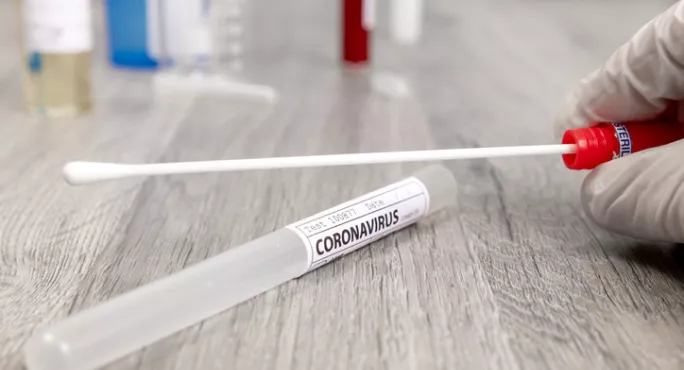A university expert has backed the Department for Education’s decision to pause the use of lateral flow tests to keep close contacts of Covid cases in school.
But Professor Louise Kenny, of the University of Liverpool, also defended the accuracy of rapid lateral flow tests, which she says are effective at picking up the most infectious individuals.
She made her comments as two new studies supported the effectiveness of these tests.
There has been controversy over the DfE’s planned use of lateral flow tests in schools to keep contacts of Covid cases in school rather than asking them to self-isolate because of concerns that these tests will miss positive cases.
And yesterday the government paused this element of its testing programme in schools after Public Health England said the balance of risk of continuing with it was unclear during this new phase of the pandemic.
Coronavirus: Everything you need to know about Covid testing in schools
Warning: Most schools ‘not finding a single Covid case using rapid tests’
School safety: Daily testing of close contacts of Covid cases put on hold over concerns about the risk involved
When asked about this decision, Professor Kenny told BBC Radio 4’s Today programme: “I think at the current time, with high community transmission and in the context of a national lockdown, the test-to-release strategy should be subject to ongoing review.
“But I think both of the studies that were published today, the Oxford study and the study in The Lancet, have added further evidence and support that a test-to-release policy might be beneficial as community transmission falls.”
Coronavirus: Concerns over lateral flow tests for close contacts
Some scientists have warned that the DfE’s use of lateral flow tests on close contacts of the virus could result in more Covid in schools because it will provide false negatives.
Concerns about the reliability of lateral flow tests (LFT) were voiced last year after reports that that they missed 60 per cent of Covid cases during a mass testing pilot at the University of Liverpool
However, Professor Kenny said today that her university’s data had been misinterpreted.
“Lateral flow tests work exactly as they are designed, in that they pick up the most infectious individuals,” she said.
“Much of the confusion about lateral flow is that their performance has been compared to PCR tests - the gold standard.
“But, critically, PCR tests pick up people with really low viral loads who are unlikely to be infectious, so that comparison is really unhelpful and underestimates the effectiveness of lateral flow.”
She said the University of Liverpool analysis showed that lateral flow tests detected at least two-thirds of people most likely to be infectious, and a new study from the University of Oxford suggests they could detect between 84 per cent and 91 per cent of infectious individuals.
The Oxford research says rapid turnaround coronavirus tests could be used to detect the most infectious people and potentially help when it comes to relaxing lockdown restrictions.
Scientists at the university say lateral flow tests can detect most people who would otherwise go on to infect someone else and that modelling showed that such tests would be effective at detecting up to 90 per cent of the infections that the individuals then passed on to their contacts.
And separate research, published today in The Lancet Public Health, has said the use of daily rapid lateral flow antigen tests for traced contacts for five days could potentially replace the requirement to self-isolate, if all tests are negative.
According to a new study, this could potentially avert a similar level (50 per cent) of onward virus transmission as the 14-day self-isolating approach without the need to quarantine at all, if individuals isolate when receiving a positive test.
The Lancet study is based on research work using mathematical modelling to estimate the effect of different quarantine and testing strategies on reducing onward transmission of Covid.

